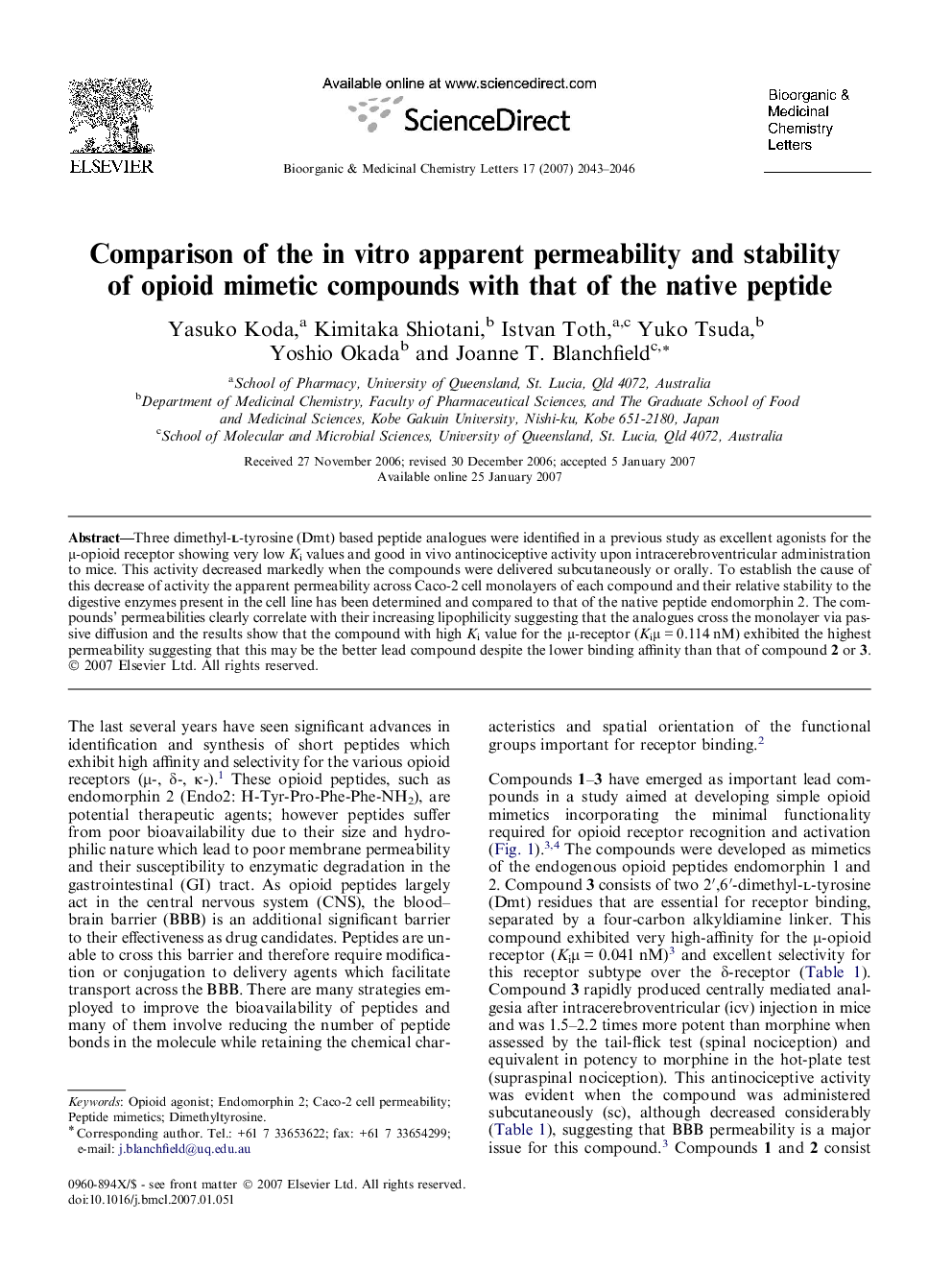| Article ID | Journal | Published Year | Pages | File Type |
|---|---|---|---|---|
| 1377793 | Bioorganic & Medicinal Chemistry Letters | 2007 | 4 Pages |
Three dimethyl-l-tyrosine (Dmt) based peptide analogues were identified in a previous study as excellent agonists for the μ-opioid receptor showing very low Ki values and good in vivo antinociceptive activity upon intracerebroventricular administration to mice. This activity decreased markedly when the compounds were delivered subcutaneously or orally. To establish the cause of this decrease of activity the apparent permeability across Caco-2 cell monolayers of each compound and their relative stability to the digestive enzymes present in the cell line has been determined and compared to that of the native peptide endomorphin 2. The compounds’ permeabilities clearly correlate with their increasing lipophilicity suggesting that the analogues cross the monolayer via passive diffusion and the results show that the compound with high Ki value for the μ-receptor (Kiμ = 0.114 nM) exhibited the highest permeability suggesting that this may be the better lead compound despite the lower binding affinity than that of compound 2 or 3.
Graphical abstractFigure optionsDownload full-size imageDownload as PowerPoint slide
